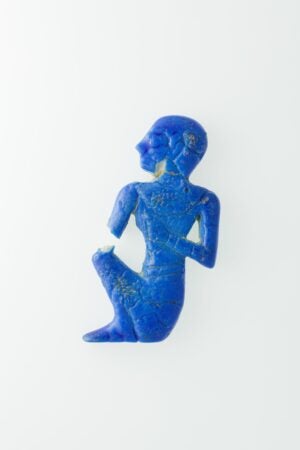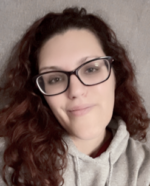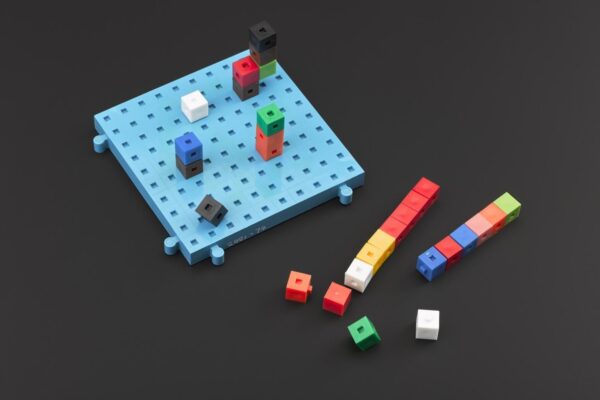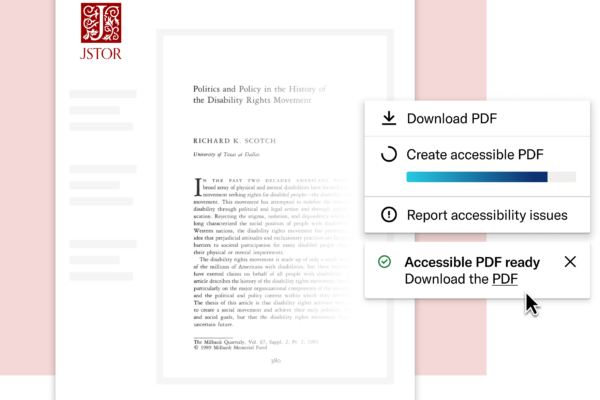
JSTOR Access in Prison Second Chance essay submission by Alexander Bolling
Editor’s note: Alexander did not include a bio. The following is his essay transcribed from the original letter we received.
Hear My Voice
Life taught me a few early lessons. Poverty. Boston winters with no heat in the house and using baking soda as both toothpaste and deodorant provided me with an understanding of economic hardship. Pain. Losing two brothers, stepping on nails, bracing for a needle every night gave me an appreciation of pain, Silence. My brother taking the brunt of a whooping as he failed to talk himself out of something we both did showed me the benefits of quietude. I was a shy kid who learned that silence could be strategy. It would take years for life to teach me to employ the power of my voice.
I was the eighth of nine children before the annexation of additional siblings. It was easy to be quiet in a big family. It was also easy to be quiet in the overcrowded classrooms of the public schools that I attended. It was the same thing around my way, I played in the background. I was comfortable letting everyone else vie for attention. I maintained the same disposition when I was incarcerated. Staying low-key remained advantageous until I returned to the classroom.
I enrolled in the Emerson prison initiative in the fall of 2017. I survived a number of cuts that whittled down a pool of nearly a hundred aspirants to a cohort of 20 students. I was in a room with some of the sharpest minds in the prison. The men in my cohort had come from all walks of life, but we were all dedicated to learning. There was a few familiar faces as well as a few big personalities. None of this made me question the validity of my views, but it did make me make it easy to recede into the shadows.
My first steps out of the shadows were driven by a desire to maintain a high gpa. Feedback from my first writing assignment suggested that I share more of my ideas with the classroom. I wasn’t building strategically quiet in the classroom, but I had the tendencies of a sponge. As a child I soaked in information in the same way, listening to lively debates at the dinner table. In high school my teachers are more than happy to have a quiet student. Every once in a while I would be called on, but after a quick response I could return to writing rhymes in my notebook.
By the time I enrolled in EPI I was more of a doodler. My notes were bordered by hieroglyphs, adinkra, and rifts on my signature. However, my academic commitment now presented a hurdle that I hadn’t faced in the past. Real participation, critical engagement with coarse material. Like a sponge, the knowledge that I soaked up had to be squeezed out of me.
Participation wasn’t simply a matter of speaking my mind. First, I had to install a filter. Although I was never loquacious, a high percentage of my speech was profane. Being a decade into my prison sentence did nothing to clean up my vernacular. In addition to presenting myself in a dignified manner, I had to overcome being adverse to attention. Having all eyes on me in a formal setting was unsettling.
The first time I gave a presentation in class, my nerves were in overdrive. I stood before my peers with the paper in my hand, shaking like a weak storm. Despite it being winter, I worked up a sweat. When it was over I returned to my seat embarrassed.
I received more feedback about participating at the end of the semester. I would receive similar comments over the next few semesters. As my cohort grew familiar I made gradual improvements. One of my classmates was now my cellmate and the others recognized my conditioned inhibition. Their response was to us to shine a brighter light on me.
There would be no playing the background in CC100. It was a public speaking course. Familiarity and burgeoning friendships didn’t make the challenge any less daunting. What did help was having a great professor. I felt slightly less ridiculous when I learned that public speaking was one of the most common fears.
Throughout the semester I received encouragement and constructive criticism. Power pros for confidence work on projecting your voice. We also watched a number of speeches good and bad, in addition to practicing off the cuff speeches. My midterm B was my lowest mark, which spoke to my struggles, but I continued to work at the craft.
The best instruction I received was about nerves. Professor Thompson suggested that I acknowledged the triggers and butterflies in my stomach, which made me aware that I had been trying to suppress them. Trying to fight my nerves only sent me into panic mode while speaking. I worked at practicing on my nonverbal presence as well as my enunciation. I finished strong and raised my B to an A -.
I continued to receive comments about increasing my participation on my way to earning a bachelor’s degree. However, I was more comfortable speaking in group settings going forward. I could deliver a presentation without shaking for sweating. The nerves still went off, but they were no longer a distraction. The classroom was a safe space, and although it had taken five years of college, I realized that people wanted to hear my voice.
Being elected class speaker was proof that people wanted to hear my voice. I knew it was coming. When it was announced that students would vote for the class speaker I began preparing. There was no way my cohort would let me escape the honor. It was a graduation gift. A ten minute speech in front of friends, family, and as much of our EPI community that COVID restrictions would allow. I would have been the last person to volunteer for it but I was ready.
I practiced my speech for weeks. I would recite it in the shower, laying on my bunk, and even practicing in the yard. For once I was excited to get before a crowd and speak.
I delivered my commencement speech without any notes. It was a decision I had made weeks ago when I had it memorized. Professor Thompson pointed out how impressive it was and told me how proud she was of me. I had come a long way. I didn’t want to read from notes because I wanted to connect with everyone in the audience. I wanted to express how much my educational experience mattered. The fact that I was able to accomplish this with a testament of the growth EPI helped me to achieve.
Public speaking became a regular part of my life. Whether it was facilitating programs at night or hosting events in the prison, I used my voice to encourage others. A friend commended me for my actions while commenting that being in front of a crowd made him nervous. At this point, I shared my story with him. Not long after he was stepping up and leading discussions and programs. I let him know that I appreciated hearing his voice.
View Alexander’s full submission (PDF)
Editor’s note
by Elizabeth Shatswell
As I read Alexander’s essay, I was touched at the community that the Emerson Prison Initiative (EPI) has built. One in which the power of speech can transcend past formal education spaces to foster relationships and build support networks within the prison community these students currently occupy. It is this sense of community that has pushed us to grapple with the questions: What lessons do we need to unlearn? How does this unlearning impact those around us? Who can we engage or encourage today?
The opinions and views expressed in these recordings, art, and posts are those of the authors and do not represent, reflect, or imply endorsement by ITHAKA.



